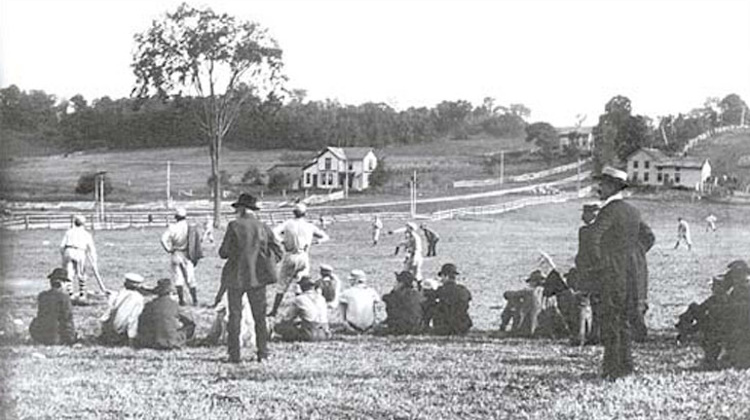
The 1880 baseball season continued the exciting growth and evolution of the sport, with several key developments and highlights.
On the field, the Chicago White Stockings, managed by Cap Anson, claimed the National League pennant with a remarkable 67-17 record. Their dominance was in large part due to their star pitcher, Larry Corcoran, who threw 43 complete games that season and notched 268 strikeouts. Corcoran’s achievements were among the earliest pitching feats that captured the nation’s attention, and he would later become one of the first pitchers to throw multiple no-hitters in his career.
1880 also marked the first season in which overhand pitching was allowed, a critical change that moved the game closer to its modern form. Prior to this, pitchers were required to deliver the ball with an underhand motion, similar to that of a modern softball pitcher. The shift to overhand pitching dramatically changed the dynamics between pitchers and hitters, introducing new strategies and increasing the importance of speed and movement in pitching.
The season was also notable for statistical accomplishments. George Gore of the Chicago White Stockings led the league with a .360 batting average, and Jim O’Rourke of the Boston Red Caps became one of the first players to achieve over 100 hits in a single season. These feats helped fuel a growing fascination with statistics, laying the groundwork for the detailed analysis that would become central to baseball in the years to come.
Off the field, tensions between players and owners began to escalate, foreshadowing the labor disputes that would later become a major part of the sport’s history. The reserve clause, introduced in 1879, continued to bind players to their teams and suppress salaries, leading to growing dissatisfaction among players.
Additionally, in 1880, the Worcester Ruby Legs’ Lee Richmond pitched the first perfect game in Major League Baseball history on June 12, a rare feat that remains one of the most celebrated accomplishments in the sport. Only five days later, John Montgomery Ward of the Providence Grays pitched the second perfect game, highlighting an extraordinary week in baseball history.
In summary, the 1880 baseball season was characterized by significant rule changes, dominant performances, and the emergence of tensions between players and owners. The allowance of overhand pitching, the growing prominence of statistical analysis, the achievements of players like Corcoran, Richmond, and Ward, and the simmering labor issues all contributed to a dynamic and transformative period in the sport’s development. The season played an essential role in shaping the future of baseball, both on and off the field.
Starting pitcher
Jim McCormick
Lee Richmond
Starting lineup
Cap Anson
George Gore
Paul Hines
Fred Dunlap
John Clapp
Arthur Irwin
Abner Dalrymple
Roger Connor
Bench
Joe Start
Jim O’Rourke
Orator Shafer
Jack Farrell
Tom Burns
Emil Gross